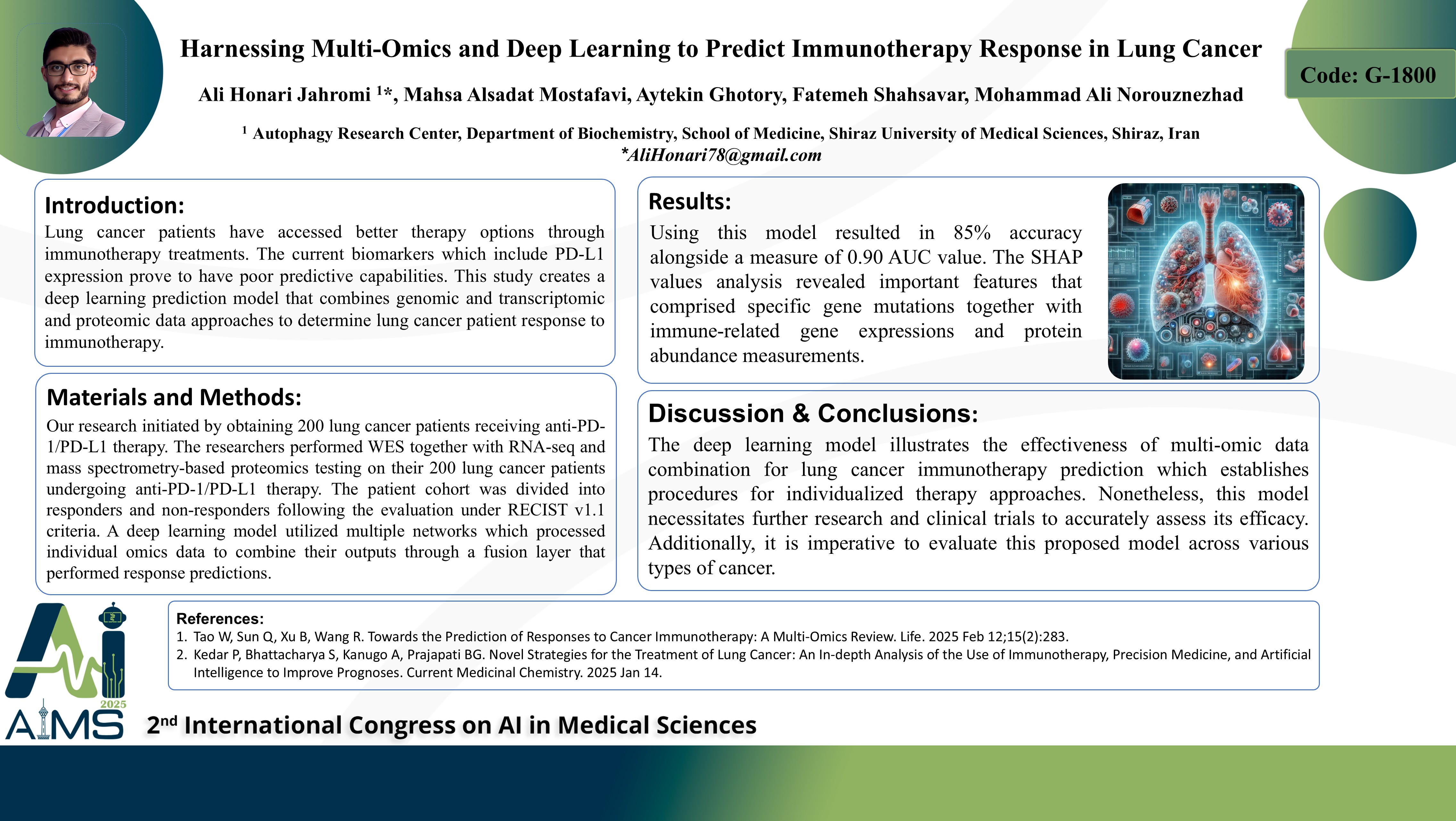Harnessing Multi-Omics and Deep Learning to Predict Immunotherapy Response in Lung Cancer: A Step Toward Precision Oncology
Code: G-1800
Authors: Ali Honari Jahromi * ℗, Mahsa Alsadat Mostafavi, Aytekin Ghotory, Fatemeh Shahsavar, Mohammad Ali Norouznezhad
Schedule: Not Scheduled!
Tag: Biomedical Signal Processing
Download: Download Poster
Abstract:
Abstract
Background and aims: Lung cancer patients have accessed better therapy options through immunotherapy treatments although patient responses continue to vary. The current biomarkers which include PD-L1 expression prove to have poor predictive capabilities. This study creates a deep learning prediction model that combines genomic and transcriptomic and proteomic data approaches to determine lung cancer patient response to immunotherapy. Method: Our research initiated by obtaining 200 lung cancer patients receiving anti-PD-1/PD-L1 therapy. The researchers performed WES together with RNA-seq and mass spectrometry-based proteomics testing on their 200 lung cancer patients undergoing anti-PD-1/PD-L1 therapy. The patient cohort was divided into responders and non-responders following the evaluation under RECIST v1.1 criteria. A deep learning model utilized multiple networks which processed individual omics data to combine their outputs through a fusion layer that performed response predictions. A model training process used both cross-validation with hyperparameter adjustment. Results: Using this model resulted in 85% accuracy alongside a measure of 0.90 AUC value. The SHAP values analysis revealed important features that comprised specific gene mutations together with immune-related gene expressions and protein abundance measurements. Conclusion: The deep learning model illustrates the effectiveness of multi-omic data combination for lung cancer immunotherapy prediction which establishes procedures for individualized therapy approaches. Nonetheless, this model necessitates further research and clinical trials to accurately assess its efficacy. Additionally, it is imperative to evaluate this proposed model across various types of cancer.
Keywords
Deep Learning, Immunotherapy, Lung Cancer, Multi-Omics
